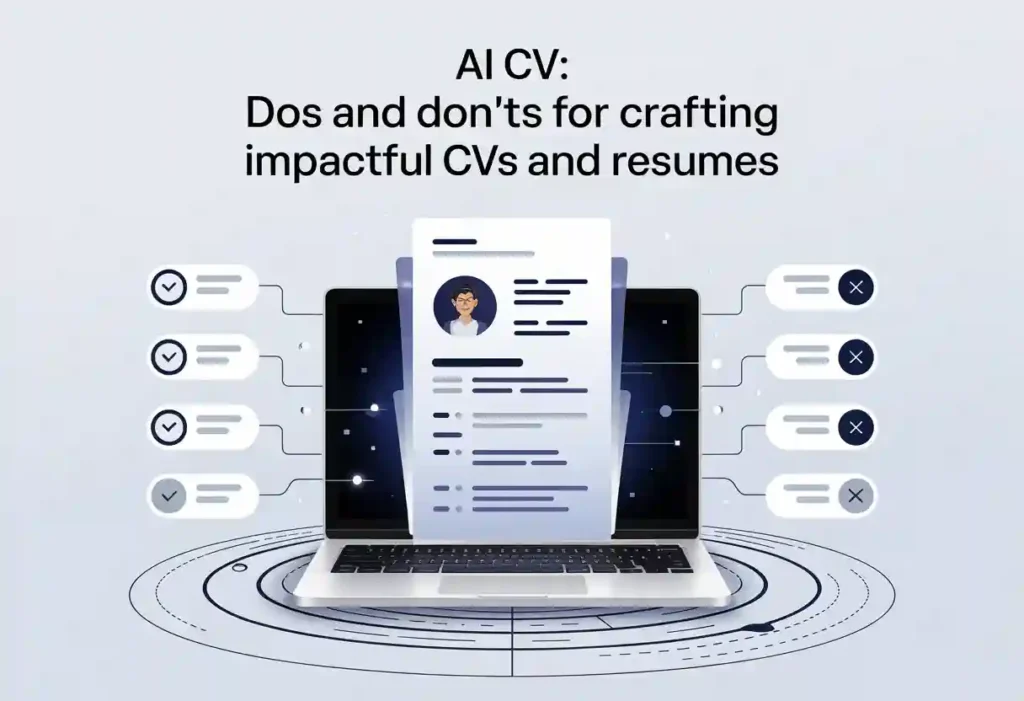How to answer personality questions in a job interview
Here Are Some General Tips:
- Before the interview, read the job description, company information, and social media platforms. Doing so will give you a feel for what type of candidate they’re looking for.
- Practice as many questions about the position as possible.
- Interviewers will ask you more than one such question in an interview, so don’t worry if some seem irrelevant!
- The hiring manager is looking to hire someone who can thrive in the company culture and add value. This means they must ask questions revealing a candidate’s personality, work ethic, values, and motivations.
Examples of personality test questions the interviewer may ask you:
- “What are your strengths and weaknesses?”
- “How would you describe yourself in three words or fewer?”
- “Do you consider yourself a morning person, night person, or something in-between?”
- “Do you prefer to work alone or as part of a team? Why?”
Most interviewers know what they want to learn about a candidate before the interview starts.
But they may also ask off-topic questions to test how you react.
Remember, it’s about figuring out whether you’re a good fit for the job or role, not if you’re the perfect fit.
Before the interview, a general personality assessment test can help you determine your personality type.
It will also help you get ready to answer questions about yourself in a way that will make them consider hiring you.
Like this post?
Sign up for our blog updates and never miss a post.
We’ll send you A FREE job interview eBook as a thank-you.
Does the job fit my personality?
Before the interview, try doing an online personality assessment test.
After each question, it will provide feedback on how your answers match expectations for that type of job.
Let’s say, “Do you prefer working in groups or alone?” and you respond, “I work well in both scenarios.”
The test result will say that you are a good all-rounder.
Further Reading
- How to Demonstrate You’re the Right “Fit” for the Job
- How to answer: Tell Me About Yourself
- How to write a resume like a pro
What are your most vital personality traits?
Everyone has different opinions on what aspects of their personality are the strongest.
Some people might say they’re charismatic, while others may say they are compassionate or logical.
However, most companies will ask this question in an interview to test how well you work with others and your ability to adapt.
So, consider the skills most suitable for the potential role before the interview.
Remember to highlight your most vital personality traits that align with the company and the job.
What is the best way to respond to personality questions in a job interview?
It is essential to be honest with interviewers. If they asked you:
“What’s your strongest personality trait?”
A good response would be something like this:
“I think my best qualities are being easy-going and open-minded.”
Regarding these types of questions, honesty matters more than anything else.
In a recent series of posts, we focused on how to respond briefly to these kinds of personality test questions.
Today, we will include four more commonly asked personality interview questions and suggested answers.
So, let’s dive into how you can successfully deal with these personality questions.
How to Answer Personality Questions
1. Do you prefer a male or female boss?
This question tests your open-mindedness.
Whatever job you are going for, you should be open to having someone of either gender as your boss.
The important thing here is to convey that you only need to have somebody who inspires you as your boss, regardless of their gender.
Suggested Answer
It makes no difference. I’ve worked with both men and women.
It’s more about how inspirational my boss is and how much trust there is in the relationship.
2. How often do you meet with your boss?
The interviewer may use this question to test how independent you are.
And how comfortable you are working according to someone else’s instructions.
The best thing you can do is strike a balance between showing yourself to be motivated and valuing communication with your boss.
Suggested Answer
I meet my boss first thing in the morning to see what urgent matters I should handle.
And then, I get on with my tasks, including any meetings we scheduled with the rest of my team or my boss.
If something urgent arises, I try to deal with it myself first.
Otherwise, I’ll explore other relevant channels to see if I can do the job without bothering my boss.
I would then take it up with them if needed.
3. What was your relationship with your last employer like?
Here are the three elements you should use: be loyal, be positive, and share how you had a great relationship with them.
Suggested Answer
They understood my desire to progress and that my interests and ambitions have grown since I started working for them.
They even gave me an outstanding reference that I would be happy to provide you with (I’d be glad to say if you have this on you).
I can’t speak highly enough of them and hopefully them of me.
If you have had difficulties with your previous employer, try to find the positive aspects of the relationship.
For example, if you face challenges, try to speak about what you learned from them.
4. Are you comfortable communicating with upper management?
The most straightforward response here is a simple yes.
But to stand out from the crowd, the best tactic is to say that you’re comfortable dealing with all staff, not just upper management.
This is a chance to use the fact that you’re a team player who places a high value on good communication with all colleagues.
Suggested Answer
I’m very comfortable dealing with all levels of the management team.
In my current position, I work with three different sets of managers, and I get along fine with all of them!
Last Words
These sample answers for responding to personality questions will help you understand what a good response could be.
Answering correctly will help make a great impression the first time.
Remember to adapt them to your circumstances and to include specific details from your past workplace wherever possible, rather than generalizations.
You’re trying to tell your interviewer a compelling story in a good interview.
In the process, you must persuade them to choose you instead of all the other applicants clamoring for the job.
You can use these questions and the answers we suggested to consider how to tell your own stories while preparing for your next interview.
That way, you’ll likely be ready when personality-related questions arise.
Dos and don’ts for answering personality questions in a job interview
Dos
- Be confident and prepared. Highlight the most vital aspects of your personality and professional career and how they relate to the job.
- Answer questions honestly, but don't say anything you wouldn't want a potential employer to know about you. Keep it positive.
- Know the company's mission and values, and show your excitement and genuine interest in the role and the company culture. Share experiences that show your skills and passion.
Don'ts
- Don’t be flippant with your answers.
- Refrain from giving the interviewer a one-word answer, for example, "yes" or "no." An excellent response to any question is not just yes or no. The interviewer is assessing whether you would be an ideal new employee. The more information you provide to support this, the better.
- Don’t lie in your answers or pretend to be someone who fits the company's culture better than what is true of yourself. It's wrong! And it will backfire when they find out it's not the case.
More Interview Tips
In the coming weeks, watch out for other categories of job interview questions we’ll be looking at, including:
- Competency (can you do the job?)
- Aspirations (why do you want the job?)
- Behaviors (can you cope with stress?)
- Legal (would you bend the rules?)
- Management (what is your management and leadership style?)
- Self-motivation (are you energised and focused?)
The more you know about these questions, the more confident you’ll be in your next interview.
Stay calm about interview questions; with time and practice, you can learn to give responses that impress the interviewer.



